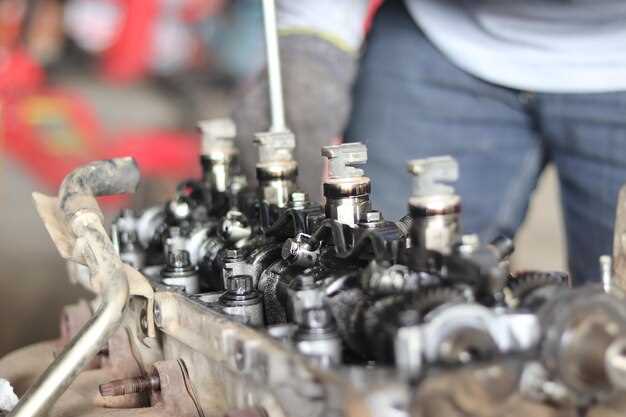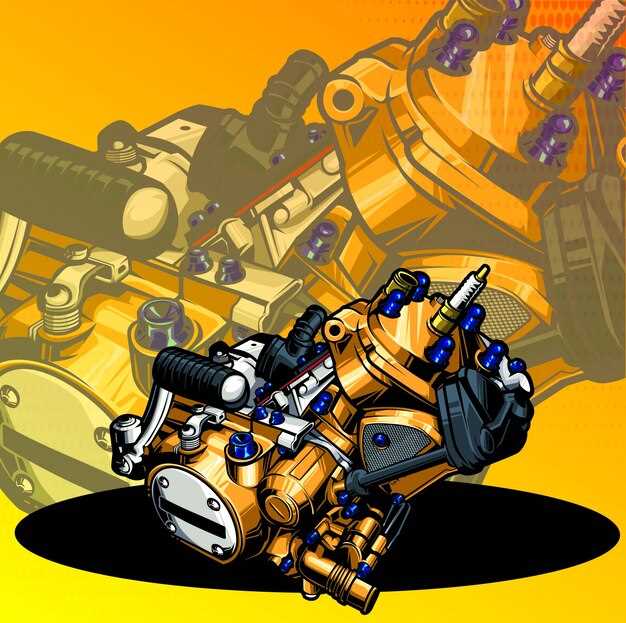
When it comes to building amateur race cars, selecting the right engine is a critical factor that can significantly impact performance and overall racing experience. With various options available, aspiring racers need to understand the characteristics of engines that best suit their racing ambitions. This article delves into the most popular and effective engines that can be adapted for amateur racing, focusing on performance, reliability, and ease of modification.
In the world of racing, engine choice can dictate not only speed but also handling and durability. A powerful engine can propel a car to impressive speeds, but it’s essential to consider how it integrates with the chassis and other components. Whether you are looking to build a stock car, a drift racer, or a track-focused machine, the right engine can enhance your vehicle’s capabilities, making it competitive on the track.
We will explore a range of engine options, including popular choices among amateur builders, highlighting their unique features and advantages. From the classic V8 monsters to efficient turbocharged inline engines, each type offers distinct benefits for racing enthusiasts. Understanding these options will enable you to make an informed decision, setting the foundation for a successful racing project.
Choosing the Right Engine for Your Race Car Build

Selecting the right engine is crucial for any amateur racing enthusiast looking to build a competitive race car. The engine not only drives the performance of the vehicle but also impacts weight distribution, handling, and overall dynamics. Start by considering the type of racing you intend to participate in, as different forms of racing may favor specific engine configurations.
Power-to-weight ratio is a vital factor. Lighter engines may provide an advantage in terms of acceleration and handling, while engines with higher displacement can offer more torque and power. Research the rules and regulations of the racing series you plan to enter, as there may be limitations on engine types, sizes, or modifications allowed.
In terms of engine types, four-cylinder engines are popular for their lightweight and balance, making them ideal for sprint races. However, if you’re eyeing endurance racing, consider a V6 or V8 for their durability and higher power outputs. Turbocharged engines also present a compelling choice, delivering significant power increases while maintaining a manageable weight.
Another critical aspect is reliability. Opt for engines known for their robustness, as reliability issues can derail a race in seconds. Communities and forums can provide valuable insights from other builders about the longevity and performance of specific engine models in racing conditions.
Lastly, consider your mechanical skills and resources. Some engines might require more extensive modifications or tuning to operate at their peak potential. Ensure you have the necessary tools and knowledge or the willingness to learn to work on the engine you choose, as this can greatly affect your race car builds and their overall success on the track.
Performance Upgrades for Popular Racing Engines

When building an amateur race car, selecting the right engine is just the beginning. Many enthusiasts seek to enhance the performance of their engines with various upgrades, tailored to their specific racing needs. Some of the most popular engines for racing builds include the Chevrolet Small Block, Ford Modular, and Honda K-Series. Each of these engines has a plethora of performance upgrades available to maximize their potential on the track.
The Chevrolet Small Block is favored for its versatility and aftermarket support. Common performance upgrades include high-flow cylinder heads, aftermarket camshafts, and intake manifolds designed for increased airflow. Turbocharging options are also available, which can significantly boost horsepower while maintaining reliability. Upgrading the exhaust system with headers and high-flow converters can further enhance performance by reducing back pressure.
For the Ford Modular engine, popular upgrades focus on forced induction and tuning. Installing a supercharger can dramatically increase horsepower, while a performance ECU tune ensures the engine runs optimally with the new setup. Additionally, upgrading fuel injectors and pumps is essential to meet the increased fuel demands of a more powerful engine. Upgraded cooling solutions, such as high-performance radiators, can prevent overheating during competition.
The Honda K-Series is renowned for its high-revving capabilities and lightweight design. Common upgrades include high-performance camshafts, larger throttle bodies, and high-flow fuel injectors. Installing a performance intake and exhaust system is critical for optimizing airflow, which contributes significantly to overall engine output. Additionally, after-tuning for optimal fuel maps can unlock hidden performance and ensure reliability under race conditions.
In all cases, proper tuning of the engine management system is vital after any performance upgrade. This ensures that the engine runs efficiently and safely while maximizing the benefits of the modifications made. With the right upgrades, popular racing engines can deliver outstanding performance on the track, contributing to a successful amateur racing experience.
Budget Considerations for Amateur Racing Engine Choices
When venturing into amateur racing, selecting the right engine is crucial not only for performance but also for managing expenses effectively. Understanding the budgetary implications of different engine options can help racers make informed decisions, ensuring they stay competitive without breaking the bank.
Cost of the Engine
The initial investment in racing engines varies significantly depending on brand, power output, and technology. Used engines can be a viable option for those on a tighter budget, often providing considerable savings compared to brand-new models. However, it’s essential to factor in potential refurbishing costs and maintenance history when purchasing a used engine.
Installation and Labor Costs
Beyond the engine’s purchase price, considering installation and labor costs is vital. Amateur racers might possess the skills to install engines themselves, which can save money. However, if professional help is needed, labor costs can add substantially to the overall budget. Ensuring you have the necessary tools and knowledge can mitigate these expenses.
Performance Modifications
Some may opt for performance modifications to enhance engine output, which can be tempting but may strain your budget. Modifications such as turbocharging, aftermarket exhaust systems, and engine tuning can lead to improved performance. It’s important to evaluate whether these enhancements align with your racing goals and consider prioritizing essential modifications over luxury upgrades.
Fuel and Maintenance Costs
Engines suitable for racing often require high-octane fuel and regular maintenance, including oil changes and part replacements. Estimating these ongoing costs is crucial for establishing a realistic budget. Choosing an engine that optimizes fuel efficiency without compromising on power can help keep operational costs manageable during race events.
Insurance and Safety Features
Additionally, insuring a racing vehicle can be a significant expense, particularly with powerful engines. It’s advisable to research insurance options and understand how engine specifications can impact premiums. Investing in safety features compatible with your chosen engine is also a critical consideration to ensure both compliance and protection on the track.
In conclusion, making informed budget considerations when selecting racing engines is fundamental to the amateur racing experience. By thoroughly evaluating the costs associated with purchase, installation, modifications, and ongoing maintenance, racers can achieve a balance between performance and affordability, enabling a more enjoyable racing journey.



